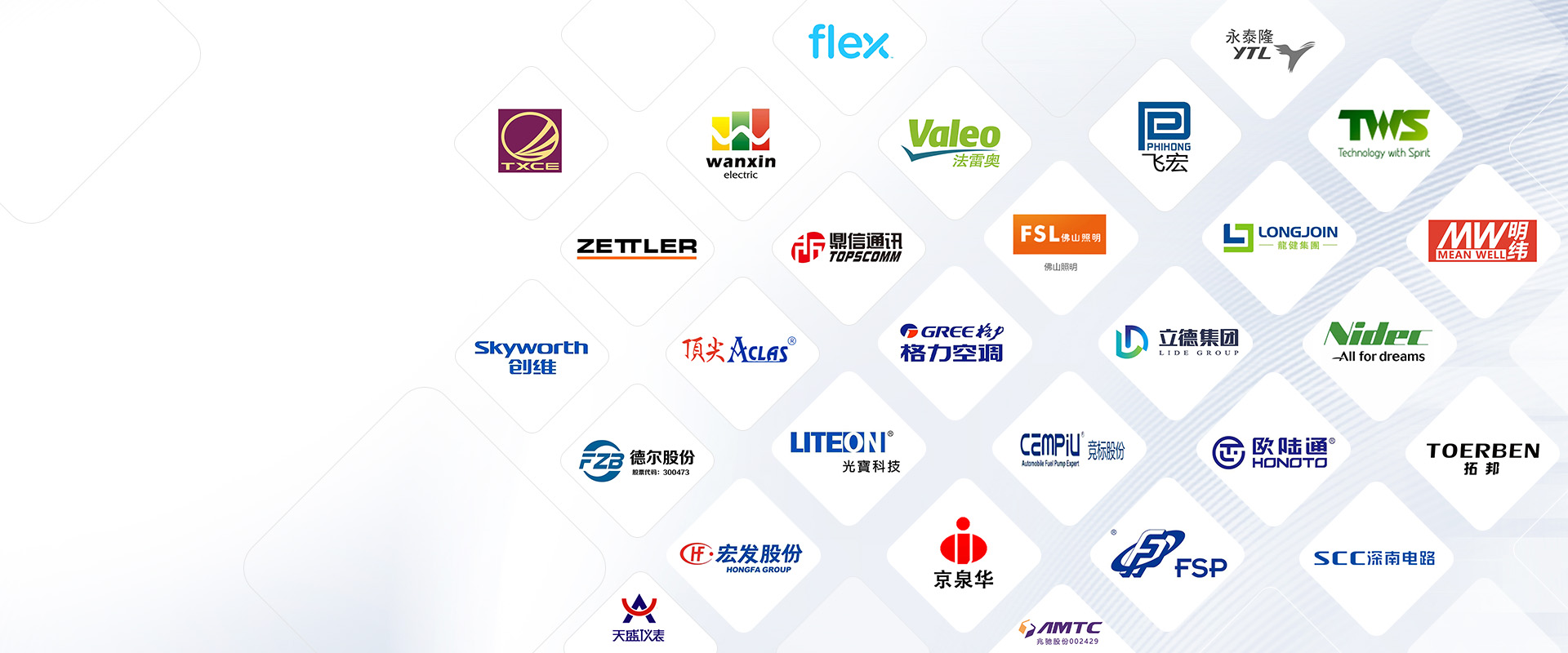- HomeProducts
-
A Manufacturer Focusing on Selective Wave Soldering Machines for 24 Years
About Sundarc
Dongguan Sundarc Automation Technology Co., Ltd.(Shenzhen Sundarc Electronic Equipment Co., Ltd.) was founded in 2010, is a collection of research and development, production and sales as one of the "national high-tech enterprises". Mainly committed to research and development of high-grade selective wave soldering equipment. Service in the automotive electronics, military, instrumentation and meter, communications, household appliances and other fields, for many well-known enterprises at home and abroad to provide professional electronic equipment solutions. The company's production base is located in Dalingshan Town, Dongguan City, Guangdong Province, 136 Congjun Road, Block B, Building 5, with an independent research and development center...Our Products
Mainly committed to research and development of high-grade selective wave soldering equipment.Case
-
 Marine ElectronicsMarine ElectronicsRecognizing the unique challenges posed by the harsh and often unpredictable environments of the sea, our high-end solutions offer unparalleled performance in soldering operations essential for the reliable operation of shipboard electronics.
Marine ElectronicsMarine ElectronicsRecognizing the unique challenges posed by the harsh and often unpredictable environments of the sea, our high-end solutions offer unparalleled performance in soldering operations essential for the reliable operation of shipboard electronics. -
 AerospaceAerospaceOur company is proud to offer premium selective wave soldering equipment that is specifically engineered to meet the exacting standards of the aerospace industry.
AerospaceAerospaceOur company is proud to offer premium selective wave soldering equipment that is specifically engineered to meet the exacting standards of the aerospace industry. -
 Medical EquipmentMedical EquipmentUnderstanding the critical importance of reliability and precision in medical electronics, which directly impact patient care and safety, our high-end solutions offer unparalleled performance in bonding components within medical devices.
Medical EquipmentMedical EquipmentUnderstanding the critical importance of reliability and precision in medical electronics, which directly impact patient care and safety, our high-end solutions offer unparalleled performance in bonding components within medical devices. -
 PCBAPCBASpecifically tailored for the PCBA (Printed Circuit Board Assembly) sector, our products revolutionize the soldering process by delivering unparalleled precision and efficiency.
PCBAPCBASpecifically tailored for the PCBA (Printed Circuit Board Assembly) sector, our products revolutionize the soldering process by delivering unparalleled precision and efficiency. -
 Communication EquipmentCommunication EquipmentOur selective wave soldering machines ensure that every component within a telecommunications system is securely and precisely joined, enhancing the overall functionality and durability of the equipment.
Communication EquipmentCommunication EquipmentOur selective wave soldering machines ensure that every component within a telecommunications system is securely and precisely joined, enhancing the overall functionality and durability of the equipment. -
 Electronic ComponentsElectronic ComponentsOur products find extensive application in the domain of electronic components, where precision and reliability are paramount.
Electronic ComponentsElectronic ComponentsOur products find extensive application in the domain of electronic components, where precision and reliability are paramount.

 Our PartnersFor many well-known enterprises at home and abroad to provide professional electronic equipment solutions.
Our PartnersFor many well-known enterprises at home and abroad to provide professional electronic equipment solutions.
DIGITAL SHOWROOM
If you want to learn more about our manufacturing capabilities, you can click on the avatar in the scene, or accept my invitation!Technical Advantage
There are 3 senior engineers with 24 years of experience and 5 engineers with 7 years of experience in our R&D team.Service Advantage
After-sales team responds 24 hours a day to provide software and hardware remote and door-to-door service one-on-one to provide welding solutions.Perfect System
Clear organizational structure and division of responsibilities, with effective communication mechanisms, standardization of processes and approvals.Product Advantage
With the industry's high-end products, support for machine custom OEM, ODM services, machine independent research and development of versatility and flexibility.Latest News
 Industry Trends
Industry TrendsTop Features of Modern Selective Wave Soldering Machines
2026-01-14The world of PCBA manufacturing is changing fast. With the shift from mass production to high-mix, low-volume (HMLV) runs, traditional soldering methods often fall short. Manufacturers face a tough choice: either rely on costly, inflexible wave soldering pallets for double-sided boards or endure the slow and inconsistent quality of manual hand soldering.

Integrating SMT And DIP Processes with On-line Selective Wave Soldering Machines
2025-09-11In the modern electronics manufacturing industry, efficiency, precision, and flexibility are key drivers of success. Manufacturers are constantly seeking ways to streamline production processes while maintaining high-quality output.

How Fast Can You Change A Line with Selective Wave Soldering?
2025-10-10In modern electronics manufacturing, every minute of downtime is lost productivity. When production switches from one PCB type to another, long changeover times can significantly reduce output. That’s where Selective Wave Soldering Machine technology makes a difference.

Can Selective Wave Soldering Save Energy on Your PCB Line?
2025-10-10Energy consumption is becoming one of the most scrutinized aspects of modern manufacturing.
Market
 1Korea2Vietnam3Malaysia4Indonesia5India6Türkiye7Russia8Poland9Czech Republic10Romania11Ethiopia12Nigeria13America14Mexico15Canada16Australia1Korea2Vietnam3Malaysia4Indonesia5India6Türkiye7Russia8Poland9Czech Republic10Romania11Ethiopia12Nigeria13America14Mexico15Canada16AustraliaDongguan Sundarc Automation Technology Co., Ltd. (Shenzhen Sundarc Electronic Equipment Co., Ltd.) was founded in 2010, is a collection of research and development, production and sales as one of the "national high-tech enterprises". Mainly committed to research and development of high-grade selective wave soldering equipment.
1Korea2Vietnam3Malaysia4Indonesia5India6Türkiye7Russia8Poland9Czech Republic10Romania11Ethiopia12Nigeria13America14Mexico15Canada16Australia1Korea2Vietnam3Malaysia4Indonesia5India6Türkiye7Russia8Poland9Czech Republic10Romania11Ethiopia12Nigeria13America14Mexico15Canada16AustraliaDongguan Sundarc Automation Technology Co., Ltd. (Shenzhen Sundarc Electronic Equipment Co., Ltd.) was founded in 2010, is a collection of research and development, production and sales as one of the "national high-tech enterprises". Mainly committed to research and development of high-grade selective wave soldering equipment.Quick Links
Contact Us
+86-18029195527 +8618029190631 Located in 4th Floor, Block B, Building 5, Guanghui Wisdom Valley, No,136, Yongjun Road, Dalingshan Town, Dongguan city, Guangdong province.Copyright © 2025 Dongguan Sundarc Automation Technology Co., Ltd. All Rights Reserved. Sitemap
































